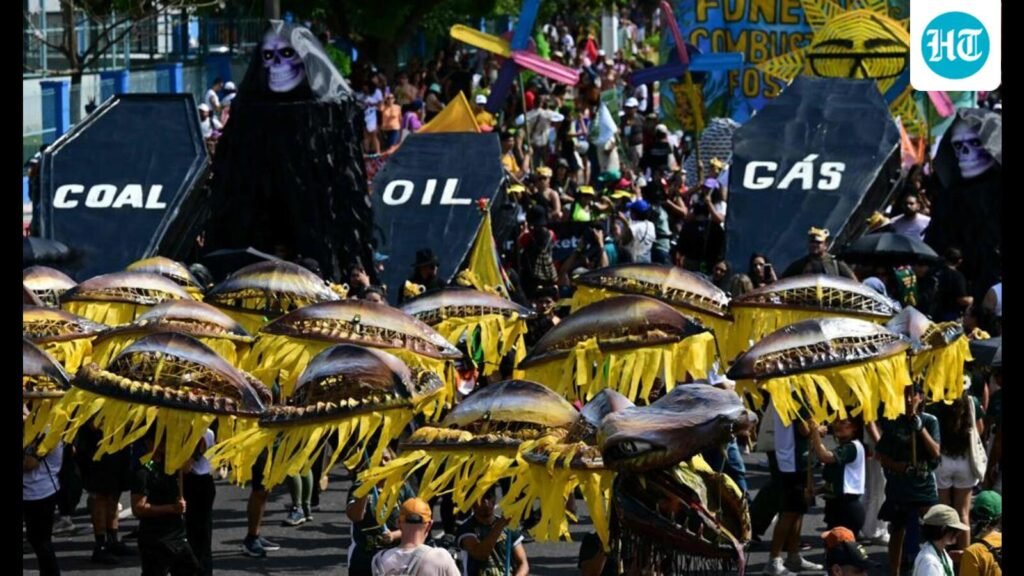
COP30, which concluded in Brazil on Saturday, was never about what to do to address the climate threat — that is already known. It was about how to make it happen, about turning promises into progress amid wars, trade chaos, and rising self-interest of nations.

There are six truths of climate action today.
Momentum has survived the US exit from Paris Agreement: The US under President Donald Trump walked away from the landmark climate accord and on doing anything on climate. Yet climate action didn’t collapse. Leaders showed up, commitments held, and Brazil’s presidency kept the show on the road. Momentum matters on global issues such as climate — it drives investment and signals resilience.
Transition to clean energy lags, but other long-ignored climate priorities get attention: A total of 115 nations have already filed Nationally Determined Contributions (NDCs). Commitments to do more have increased on the back of strong deployment of renewables so far. We’re headed for a doubling of renewables by 2030, not the tripling agreed two years ago at COP28. There’s a bright spot here: $6 billion has been committed for conserving forests and oceans. These natural sinks absorb half our emissions and oceans swallow 90% of excess heat.
Fossil fuel phase-out hits a wall again: Getting nations to agree to the phase-out of fossil fuels is as hard as doing it. After it took 28 COPs to raise the issue, this summit failed to agree on laying out a road map, despite the Presidency putting it on the negotiating table. Transition must balance dialing down fossil fuels with scaling alternatives and coordinating production-cuts for cash-cow resources. This will be slow and complex, and demands unprecedented cooperation among competing interests. It needs to start now. Future COPs, or even alternative platforms, must tackle this head-on.
Adaptation finally gets a seat, but a small one: The developed countries promised to triple finance by 2035 for infrastructure and early warming systems communities and developing countries need to deal with climate crisis impacts. This sounds good, but it’s late, vague, and still insufficient. For countries drowning in floods and droughts, this is survival, not charity. Wealthy nations must step up — talking timelines while communities sink is indefensible.
India’s rising influence, and rising risks: Leveraging its excellent performance in putting renewables on ground, India played hardball, calling out weak ambition from developed nations. India also pushed hard for more financing for the developing countries. This stance is vital: The world needs stronger emission reductions and finance in the next five years, not a complacent acceptance of the status quo. This is work in progress and will continue. But risks loom too: COP agreed to a two-year process to discuss trade. But in effect, the EU’s carbon tariffs will hit our exporters in 2026, undermining competitiveness. The trade deal with the EU that is under discussion is now the main platform to tackle this issue.
Geopolitics rules, but business must have a seat at the negotiating table: With the US out of the picture, COP30 mirrored global power plays — emerging alliances, and thorny issues such as trade, critical minerals, climate finance kicked down the road until the wider trade deals and geopolitical realignments take shape. However, the dynamic between developed and developing nations seemed better balanced. The elephant in the room? Governments can’t deliver alone.
As co-chair of the Alliance of CEO Climate Leaders, the world’s largest coalition of corporate leaders on climate, it is clear to me that business isn’t just a financier, it’s the engine for green hydrogen, carbon capture, and resilient infrastructure. But business was largely missing at COP30. The private sector lacks a formal seat at the table. We need business in negotiations to drive action — with accountability, not just applause.
The bottom line is COP30 kept climate conversation alive in a fractured world. It has brought forth strategies and stakeholders we have long ignored and kept the doors open to deal with more thorny issues. An agreement on several issues has been reached after intense negotiations, and this is much better than having no agreement at all. One hundred and ninety countries demonstrated that they were still in the climate crisis fight — we may not be winning it yet, but we’re not giving up either. And that’s a win in these times. Judging it just by headline numbers that we are so used to, in terms of emission reductions or climate finance would be a mistake.
Sumant Sinha is founder, CEO and chairman, ReNew. The views expressed are personal





